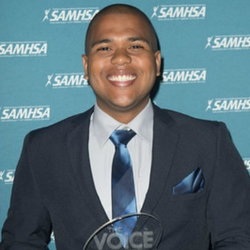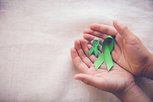 https://www.soberrecovery.com/images/og-image.gif
https://www.soberrecovery.com/images/og-image.gif
Recovery Hero of the Week:
Joshua Calarino
By SoberRecovery, Staff Writer
 250
250
https://cimg2.ibsrv.net/cimg/www.soberrecovery.com/250x250_85-1/730/JoshuaCalarino_crop-180730.jpg
250
250
https://cimg2.ibsrv.net/cimg/www.soberrecovery.com/250x250_85-1/730/JoshuaCalarino_crop-180730.jpg
“You have to be able to share your own personal stories of recovery and—if you don’t feel like you’re in recovery yet—maybe just what’s happening to you currently.”
Age: 20
Lead Peer Specialist and Youth Leader
Currently living in Miami, FL
Joshua Calarino is a recipient of the 2016 SAMHSA Voice Awards. He served on the Youth M.O.V.E. Miami Executive Board of Officers as vice president in 2014, and he currently serves on the board of directors for Youth M.O.V.E. National. In his role as a youth leader in the community, Joshua represents youth voice for the system of care expansion grant Beyond Empowerment, under the South Florida Behavioral Health Network. Joshua also plays an integral role in providing youth leadership programming at the Federation of Families of Miami-Dade Chapter Inc., and the Youth and Family Center.
This year, the theme of the Voice Awards was "Strengthening Families Through Hope and Help." In celebration, SoberRecovery will be releasing an exclusive interview with each of the winners every Friday for six weeks.
Below is our interview with Joshua Calarino.
How did you get started with Youth M.O.V.E.?
It’s not a super glamorous story, to be honest. It was about junior year in high school, which is probably the most stressful year, I would say, with applying to colleges, making yourself look good, all the standardized testing. At the time, my mom was also working tons—I’m an only child—so I get home and there’s no one really around. Mom’s out working. I’m tired and stressed because of school and work and tests and all of that. So that takes a toll on your mental health.
So I started to feel a little depressed. I was losing interest in the things that I liked like dancing, singing and sports. And then at school I was talking to a friend of mine, Anna, and she invited me to go out to Youth M.O.V.E. Miami, where they had free salsa classes. I wanted to mainly get back to dancing and all that, so I attended and quickly over time I learned about the Youth movement, what Youth M.O.V.E. stood for, advocacy, and it just sort of snowballed from then until now.
So is Youth M.O.V.E. particularly for those who struggle with depression?
No, not depression, specifically. So what Youth M.O.V.E. stands for is Youth Motivating Others Through Voices of Experience, and it’s essentially a national movement that helps pretty much with stigma. It centers on mental health, but it branches out to just general youth advocacy, whether it be in mental health, education, juvenile justice or child welfare. Our mission is just pretty much to have youth be equal partners in the voices of change at the policy-making level.
I see. And have you seen any movement in changing any of those things you just mentioned?
I don’t think I would be able to tell you that nationally. But I know that within my own Youth M.O.V.E chapter, we’ve launched campaigns such as the “Therapists Be Like…” campaign and the “Yellow Bus” campaign. The “Therapists Be Like…” campaign is essentially a very small thing where we had a bunch of youth come in and essentially share their stories of therapy that they felt weren’t good sessions and we sort of made it into a comical sort of deal to then present to the program subcommittee of our grant. Then that sort of sparked a series of focus groups that I lead with the evaluation team to try and see where the program isn’t going right, what the therapists are doing wrong and what other things we can do.
I know that talking to youth about mental health or addiction is a difficult thing to do. What do you think the youth population needs to hear in order to start being open about these issues?
If you don’t talk, nothing is going to change. No movement ever happens in silence. You know, you look up to your role models—Martin Luther King, Harriet Tubman—they weren’t silent. So you have to speak up. How will people know that there’s a problem if you don’t say that there’s a problem? So I think that will be what I would tell them—and to share their stories. You have to be able to share your own personal stories of recovery and—if you’re don’t feel like you’re in recovery yet—maybe just what’s happening to you currently.
And what are you doing now for your personal wellness besides the Youth M.O.V.E. organization. Is there anything that you try to incorporate into your life to stay positive?
So, I guess this would reflect upon what is called WRAP. It’s a training that I’ve taken which is called the Wellness Recovery Action Plan. If you haven’t taken it, I would recommend taking the training. Essentially, it’s a little guide where you sit down and make a plan for when you’re feeling aggravated or starting to move towards a crisis. You basically take what you know happens just before—those little hints or signs—and make a plan for what to do when you start to feel those symptoms coming on. And once the crisis has happened, you also have another plan to help yourself move back from that crisis. For myself, I like to listen to music or go for a run and exercise. Playing video games is another big thing that I do. Or, sometimes, I just go for a nice, leisurely walk.
I imagine that it’s easier to have those plans when you know yourself.
Exactly. So it’s a lot of introspection. It’s one of those things where you can’t really have someone else do it for you.
Okay. So out of everything that you’ve been involved in, would you say that this award is your greatest achievement?
I don’t know. I guess, for me, the biggest thing wouldn’t be this award because I like to think on a more grassroots level. I think the small victories are what keeps me going. The youth who have come up to me and said, “Had you not spoken to me on such and such day, I probably would be dead today.” Because in this particular line of work, changes happen slowly. Sometimes the changes that you want don’t happen maybe not even within your lifetime. So you have to accept the small victories, and those are the ones that should matter most. The personal stories where such and such person was like, “Wow, thank you! Without you, I might not be in college, I might not have graduated.” Things like that.
It’s amazing how when one person steps out into the spotlight, they make other people more comfortable with their own story.
That’s funny, that actually ties into one of my favorite quotes. It’s by Marianne Williamson, from the story “Our Deepest Fear.” And the quote is, “And as we let our own light shine, we unconsciously give other people permission to do the same. As we are liberated from our own fear, our presence automatically liberates others.”
So that is something that I see and I’m like, you know, you got to keep sharing your story. Because it helps the people around you who haven’t shared about themselves start to open up.
Would you like to be featured in our Recovery Hero of the Week series? Send in your story (500–1000 words) to [email protected] and you might just be selected as our next featured hero. Thank you for spreading the message!






